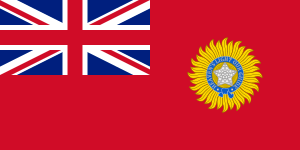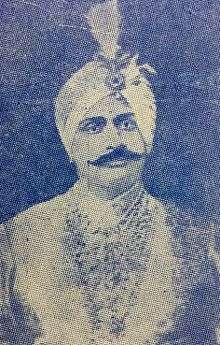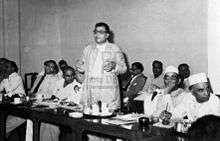Prime Minister of Orissa
| Prime Minister of Orissa in the British Indian Empire | |
|---|---|
 | |
| Style | The Honorable |
| Appointer | Governor of Orissa |
| Formation | April 1937 |
| First holder | Krushna Chandra Gajapati |
| Final holder | Harekrushna Mahatab |
| Abolished | August 1947 |
The Prime Minister of Orissa was the head of government and the Leader of the House in the Legislative Assembly of Orissa Province in British India. The position was dissolved upon the independence of India in 1947.
History
The office was created under the Government of India Act 1935. During the Indian provincial elections, 1937, the Indian National Congress won 36 seats in Orissa, while other parties and independents won 24 seats. The first premiership was held by the influential aristocrat and independent legislator Sir Krushna Chandra Gajapati for 80 days. Biswanath Das, a provincial legislator of the Congress, then claimed the right to form the government, despite the pan-Indian Congress policy of boycotting constitutional governments. The Das ministry lasted until 1939. Sir Gajapati then formed a second government in 1941, which lasted until 1944. Sir Gajapati is regarded as the architect of the modern Indian state of Orissa (now Odisha). During the Indian provincial elections, 1946, the Congress won 47 seats. Congress leader Harekrushna Mahatab became Prime Minister and later the first Chief Minister of Orissa after Indian independence in 1947.
Office holders
| No | Name | Image | Term(s)[1] | Party | Governor | Viceroy |
|---|---|---|---|---|---|---|
| 1 | Sir Krushna Chandra Gajapati |  | 1 April 1937 to 18 July 1937 | Independent | John Austen Hubback | The Marquess of Linlithgow |
| 2 | Biswanath Das | 19 July 1937 – 4 November 1939 | Orissa Provincial Congress | John Austen Hubback G. T. Boag | The Marquess of Linlithgow | |
| 3 | Sir Krushna Chandra Gajapati |  | 29 November 1941 – 29 June 1944 | Independent | Howthorne Lewis | The Marquess of Linlithgow The Viscount Wavell |
| 4 | Harekrushna Mahatab |  | 23 April 1946 – 15 August 1947 | Orissa Provincial Congress | Sir Chandulal Madhavlal Trivedi | The Viscount Wavell Earl Mountbatten |